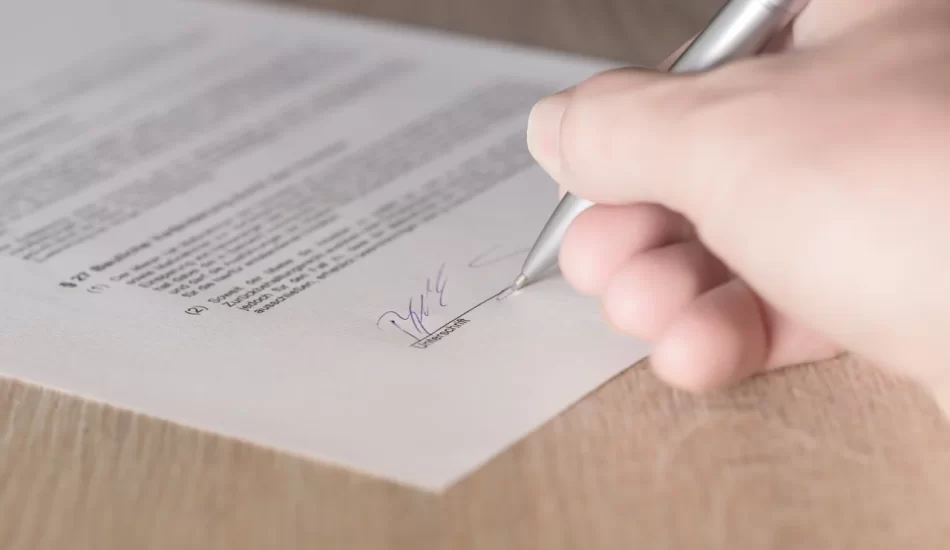5 Documents You’ll See At the Closing Table

Buying a home is a huge milestone, but it also comes with a ton of paperwork that can make your head spin. Don’t worry, though! Understanding the documents you’ll encounter at closing can help you feel more in control of the process and ensure that you’re getting the best deal. Here are the five most important documents you’ll most likely see at closing:
Closing Disclosure
The Closing Disclosure may not be the most riveting read, but it’s essential to making sure that you’re not getting ripped off. It breaks down all the costs associated with your transaction, including the lender’s fees, escrow accounts, title fees, taxes, and more. Review it carefully and don’t be afraid to ask questions!

Deed
The Deed is a legal document that transfers ownership of the property from the seller to the buyer. It’s the document that officially makes you a homeowner! This document will include the names of the buyer and seller, as well as a legal description of the property. Make sure to review the deed carefully to ensure that all of the information is correct.
PLAT Map:
The PLAT Map is a physical map of the property that you are purchasing. It is used to verify that you are purchasing the correct piece of property, so don’t skip over it! Be sure to review this document carefully and consult with your real estate agent or attorney if you have any questions. After all, you don’t want to end up with a piece of land that is actually miles away from where you thought it was! Plus, it’s a good excuse to practice your map-reading skills.
Promissory Note
The Promissory Note is the contract that seals the deal between you and your lender. It outlines the terms of the loan, including the amount borrowed, the interest rate, and the repayment schedule. This document serves as a binding agreement between you and your lender, so it’s important to review it carefully and make sure that you understand all of the terms.

Deed of Trust
The Deed of Trust is a legal document that gives the lender a security interest in the property as collateral for the loan. It outlines the terms of the loan and the consequences of defaulting on the loan. Or as we like to say, “If you don’t pay… you don’t stay.” (This document is often confused with the “deed”, but that refers to an entirely different document!)
Don’t let the paperwork at closing overwhelm you. Understanding the documents involved in a real estate transaction is crucial to making sure that your closing goes smoothly and that you’re getting the best deal possible. From the Closing Disclosure to the Deed of Trust, each document serves an important purpose in the home buying process. Take the time to review and understand these documents, and you’ll be on your way to happily ever after in your new dream home! To schedule a closing, you can use our convenient online scheduling form!


